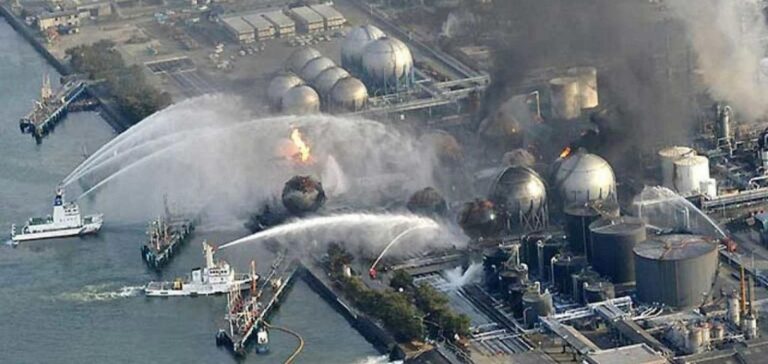Japan commemorated Saturday the twelfth anniversary of the March 11, 2011 triple disaster, which caused a 9.0 magnitude earthquake, a deadly tsunami and a nuclear disaster at the Fukushima Daiichi plant. The tsunami waves, as high as buildings, swept across the region, leaving nearly 18,500 people dead or missing. The ensuing nuclear accident forced the evacuation of tens of thousands of people and rendered entire localities uninhabitable for years.
Decontamination in progress
Since then, decontamination work has reduced the uninhabited areas from 1,650 km2 to 337 km2, or 2.4% of Fukushima Prefecture. However, the dismantling of the plant and the decontamination work are far from being finished and are expected to last for several more decades. One of the critical points is the management of more than one million tons of contaminated water accumulated at the plant site.
Discharge of contaminated water
The Japanese government has reconfirmed that it plans to start the gradual release of this water into the Pacific Ocean this year, a controversial project that has received favourable opinions from the International Atomic Energy Agency (IAEA), which oversees it, and the Japanese nuclear regulator.
Acquittal of former Tepco officials
In mid-January, the Japanese courts confirmed the acquittal of three former officials of Tepco, the operator of the Fukushima power plant. The only individuals to be tried criminally in connection with this disaster were found not guilty of negligence for the 2011 accident.
The management of contaminated water, a sensitive subject
The proposed release of contaminated water has raised concerns among local communities, fishermen and environmental groups that it will harm the fishing industry and affect human health. However, the government assured that the decision to release the water was made after careful analysis and that all necessary precautions would be taken to minimize the risks.
Twelve years after the Fukushima disaster, Japan is still dealing with the consequences of this tragedy. Decontamination is underway, but it will still take time for the region to fully recover from this disaster.





















